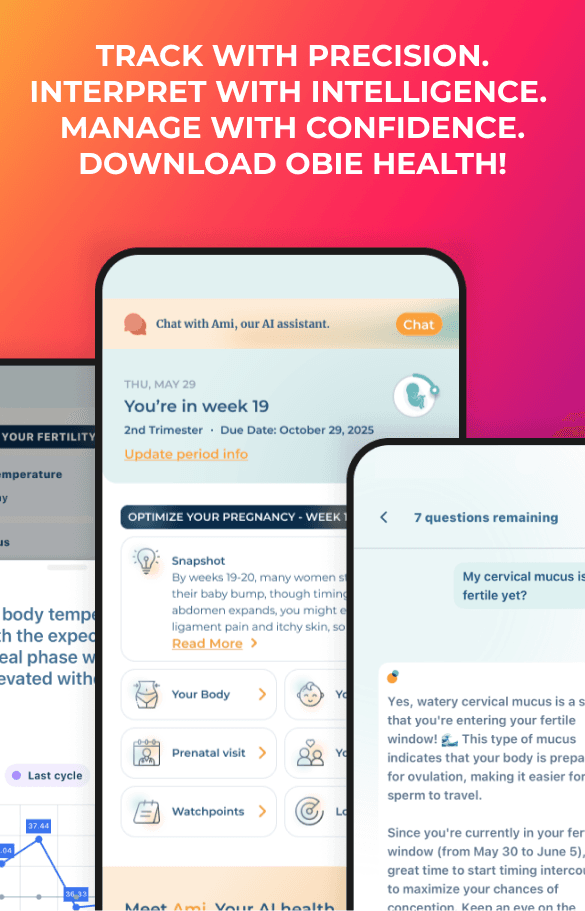How PMS May Weaken Your Body’s Defenses
Obie Editorial Team

If you tend to feel exhausted, foggy, or even catch a cold right before your period, you're not imagining things—and you're not alone. Science is increasingly confirming what many women have long suspected: the immune system changes across the menstrual cycle, particularly during the luteal phase—the time between ovulation and menstruation. This fluctuation can influence how your body responds to infections, inflammation, and stress.
Understanding the connection between immune suppression and PMS (premenstrual syndrome) helps explain not just the emotional and physical symptoms you might experience, but also why you may be more susceptible to viral illnesses or chronic condition flare-ups at this point in your cycle.
Hormones and Immunity: A Complex Dance
Fluctuations in estrogen and progesterone drive the menstrual cycle. These hormones don’t just influence reproduction—they also play a role in how your immune system functions.
Estrogen, which peaks around ovulation, boosts immune activity, enhancing the body’s ability to fight infections. Progesterone, which rises in the second half of the cycle, has the opposite effect. It’s more immunosuppressive, dampening immune responses to help prepare the body for a potential pregnancy.
While this immune suppression is biologically adaptive, reducing the chance of the body attacking a fertilized egg, it comes at a cost. During the luteal phase, women may become more vulnerable to viral infections and experience an increase in inflammatory symptoms, including those commonly associated with PMS.
Why You May Feel Sick or Tired Before Your Period
During the premenstrual phase, many women experience symptoms such as fatigue, headaches, muscle aches, low-grade fevers, and even sore throats—symptoms that resemble an oncoming illness. There’s growing evidence that these symptoms are not purely hormonal or psychological, but may be linked to real shifts in immune response.
These immune-related changes can explain:
- Increased fatigue: A suppressed immune system requires more energy to function, leading to overall lower energy levels.
- Frequent minor illnesses: You might notice colds or viral infections hitting harder or occurring more often right before your period.
- Flare-ups of autoimmune conditions: Conditions like lupus, rheumatoid arthritis, or Hashimoto’s thyroiditis may temporarily worsen during the luteal phase due to immune suppression and increased inflammation.
- Heightened inflammation: Progesterone can increase pro-inflammatory cytokines, which can exacerbate pain, bloating, and mood changes.
Practical Ways to Support Immune Health During the Luteal Phase
While these changes are a natural part of the cycle, understanding them can help you work with your body rather than against it. During this phase, you can take steps to bolster your immune defenses and reduce symptom severity.
- Prioritize rest and sleep, especially during the last week of your cycle.
- Increase your intake of anti-inflammatory foods (think leafy greens, berries, turmeric, and omega-3 fats).
- Stay well hydrated to help your lymphatic system process inflammatory byproducts.
- Reduce exposure to pathogens when possible. This includes practicing good hand hygiene, avoiding crowded areas when sick contacts are present, and supporting gut health.
- If you have a chronic illness, consider tracking flare-ups in relation to your cycle to inform treatment timing or symptom management.
- Gentle movement, like walking or yoga, can reduce inflammation without taxing your immune system.
Reframing PMS: A Window into Your Health
Rather than viewing PMS as something to simply "get through," it can be helpful to see it as an important physiological signal. The discomfort you feel may indicate that your body is entering a more vulnerable immune phase. By tuning into these rhythms, you can learn to anticipate what your body needs and take action to protect your well-being.
As research evolves, we're learning that hormonal health and immune health are deeply intertwined. Understanding this connection not only empowers women to manage their cycles more effectively but also provides a more compassionate lens through which to view PMS and related symptoms.
Source:
Tiranini L, Nappi RE. Recent advances in understanding/management of premenstrual dysphoric disorder/premenstrual syndrome. Fac Rev. 2022 Apr 28;11:11. doi:10.12703/r/11-11. PMID: 35574174; PMCID: PMC9066446.







